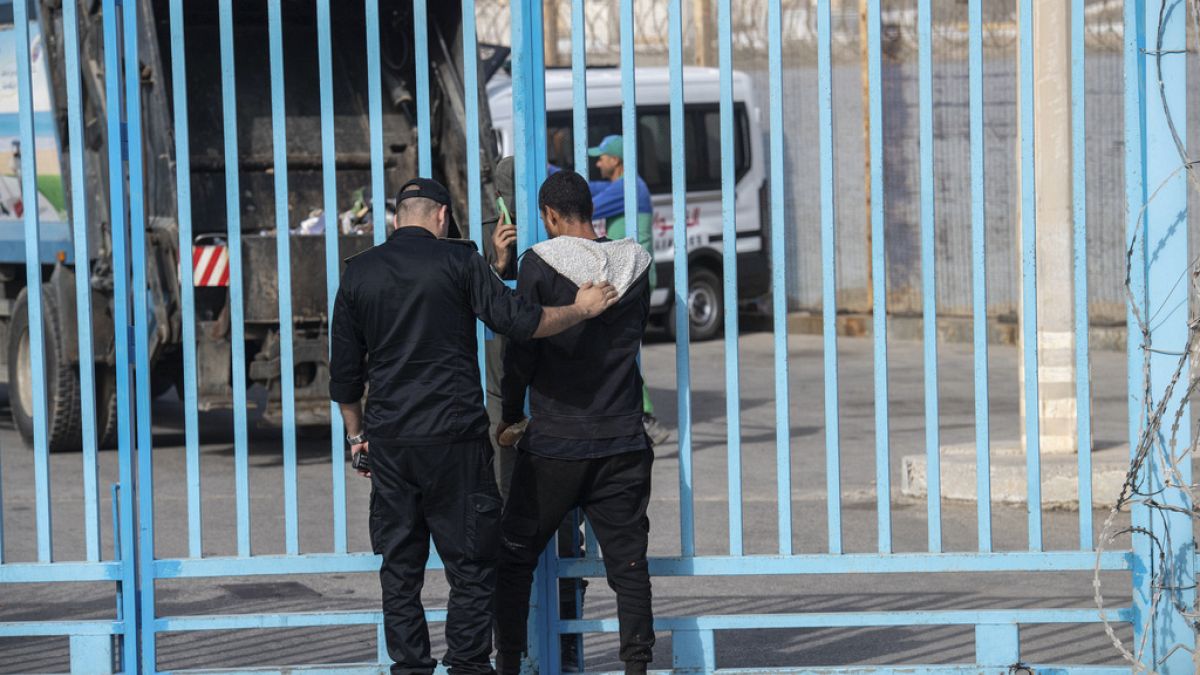The Moroccan-Spanish border has been a hotspot for tensions between migrants and authorities for the past three nights. Moroccan riot police were deployed to prevent people from attempting to cross into Spain from Morocco after calls on social media urged groups to head to Ceuta. The Moroccan police used water cannons against the individuals, who retaliated by throwing stones. The situation escalated on Monday when nine young people trying to swim to Ceuta were intercepted by Moroccan forces. On the Spanish side, the Guardia Civil and Spanish National Police are on alert, but have not taken any action as of now.
Fnideq, a Moroccan border town, saw a heavy deployment of security personnel to disperse groups of individuals attempting to breach the border fence. Ceuta and Melilla, small Spanish territories in North Africa, have long been targeted by migrants and refugees seeking better opportunities in Europe. The recent surge in migrant attempts involved a mix of Moroccans, sub-Saharan Africans, Algerians, and others waiting for an opportunity to cross into Europe. The Spanish Interior Ministry stated that the joint efforts of Spanish and Moroccan security forces had the situation under control. Moroccan security forces have prevented over 45,000 migration attempts from January to early September, with over 11,000 attempts foiled around Ceuta in August alone.
The Moroccan police took action against the groups of people on social media to prevent another mass migration attempt to Ceuta. After calls for people to cross the border went viral on social networks, authorities arrested 60 individuals suspected of inciting the attempt. While the tactics used by the Moroccan police were met with resistance in the form of stone-throwing, it is clear that both Moroccan and Spanish authorities are on high alert to prevent any further breaches. Despite the heavy security presence, the situation remains tense as individuals continue to seek opportunities to cross the border.
The ongoing tensions at the Moroccan-Spanish border highlight the challenges faced by both countries in managing migration flows. The influx of migrants and refugees seeking entry into Europe has put pressure on security forces to maintain order and prevent unauthorized crossings. The joint efforts of Spanish and Moroccan authorities have proven to be effective in controlling the situation, but the continuous attempts by individuals to breach the border fence remain a concern. The situation underscores the need for comprehensive strategies to address the root causes of migration and provide alternative pathways for individuals seeking to move to Europe for a better future.
As tensions continue to rise at the Moroccan-Spanish border, the focus is shifting towards finding sustainable solutions to prevent future migration attempts and ensure border security. The recent surge in attempts to cross into Ceuta underscores the need for enhanced cooperation between Morocco and Spain to address the underlying factors driving migration. By working together to strengthen border controls, improve living conditions in migrants’ countries of origin, and provide legal pathways for migration, both countries can effectively manage the flow of individuals seeking entry into Europe. It is essential for authorities to address the root causes of migration and work towards comprehensive solutions that prioritize human rights and dignity.
The situation at the Moroccan-Spanish border serves as a reminder of the complexities surrounding migration and the need for a coordinated approach to address the challenges posed by irregular migration. As both Morocco and Spain continue to grapple with the influx of individuals seeking entry into Europe, it is crucial for authorities to prioritize dialogue, cooperation, and respect for international law in managing migration flows. By adopting a holistic approach that addresses the root causes of migration, enhances border security, and promotes sustainable solutions, both countries can work towards ensuring a safer and more orderly migration process. The ongoing tensions at the border underscore the importance of international cooperation and concerted efforts to address the complex issues surrounding migration and promote global solidarity.










